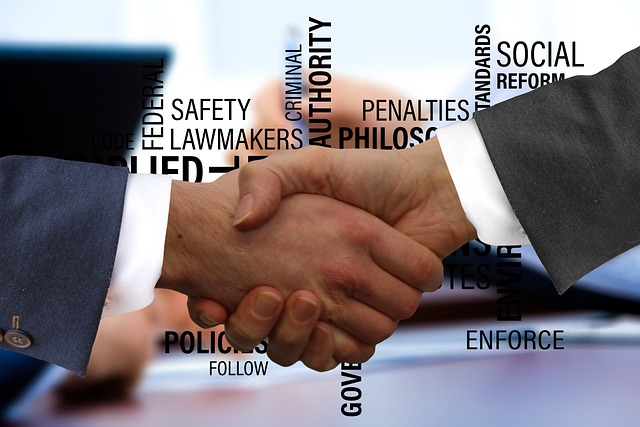Rapid Translate Team
Legal document translations are important for running operations across different language zones. This activity is crucial for people intent on expanding operations to other countries. Legal translations are also important for people moving to other countries with different linguistic backgrounds.
However, due to the sensitive nature of legal documents, only a select handful of professionals can ultimately translate them. So, who can translate legal documents?
Legal translations involve changing legal documents from one language to another for legal use while retaining their original meaning. Since accuracy is paramount in these translations, legal translators must possess enough skill and experience. This is to aid in creating accurate results representing the same information in the target language. This post covers these requirements in depth.

Table of Contents
Who Is Qualified To Offer Legal Document Translation?
Unlike many other aspects of translation, legal translation requires the highest levels of accuracy despite being highly technical. Of course, other areas of translation also require a high level of accuracy. However, translating legal documents improperly could be far more detrimental in the long term. Hiring professionals with the best track records and profiles is crucial.
But what should someone look at when considering a professional translator?
Legal Translators Must Possess the Language Expertise
Expertise in the source and target languages is one of the primary prerequisites to being a legal translator. This expertise must transcend the basic conversational language abilities people learn in school or online. Legal translation requires a deeper knowledge of both languages of interest. This would include understanding grammar, word choice, and language rules.
Considering this factor, translators who grew up in families that spoke multiple languages possess significant advantages. This skill provides a strong foundation for a broader comprehension of languages, making it valuable for better understanding. Of course, speaking the native language isn’t necessary since people can also learn languages for subsequent fluency.
Well, mastering foreign languages usually involves a lot of effort, sometimes requiring the translator to live in the country. On average, it could take a few years to master a language in such a case. Nevertheless, obtaining a deep understanding sets you off toward a better standing as a legal translator.
Legal Expertise Is Another Essential Prerequisite
Possessing legal expertise is another essential requirement for an excellent legal translator. Generally, legal experience and background offer an unusual advantage since translators already understand most legal documents and elements. In this case, many translators are lawyers or have played other roles in the legal field.
Legal knowledge comes into play quite frequently when you deal with associated documents. A vast understanding of the legal terminology is useful, allowing translators to recreate essential ideas and concepts in other languages. Besides that, knowledge of different legal systems also comes in handy since it becomes necessary to understand the contexts at play.
Finally, translators with legal expertise usually find it easier to keep up with trends in the industry. Since trends also affect how translations work, lawyers track the wide range of variations in their field more effectively.

Legal Translators Must Have the Needed Certifications

Many countries mandate certifications for legal translators to be eligible to offer services. These certifications sometimes indicate that translators have taken oaths in court. Since legal translations mostly require certifications and notarizations, these translators must also swear and stamp them, asserting their validity.
Generally, translators must undergo specific training to obtain these relevant certifications. While these certifications vary with location, they validate a translator’s ability and pedigree. Many certifications organize specialized training and exams for translators to test their skills and knowledge of the subject.
Besides improving your translation skills, certifications help translators show prospective customers and clients their credentials and capabilities as translators. But apart from obtaining certifications, professionals can also opt for other developmental programs. For instance, higher degrees and diplomas come in handy in many cases. Only with the relevant certificates can a translator offer a certified translation.
Cultural Knowledge of the Language Regions Is Essential
Besides understanding the language, legal documents require cultural knowledge of the country you’re translating for. Legal and court terminology, as well as the common expressions in that country, sometimes need specialized understanding. This is because they are sometimes not directly translatable.
For instance, legal systems in some countries do not necessarily contain elements present in others. Phrases like “Pleading the Fifth” do not make sense in other countries if translated directly into French or Spanish. However, someone with contextual knowledge of the legal systems could accurately translate or depict the phrase. This is one factor that makes machine translation unfit for legal documents.
Translation Experience Is Always a Major Plus
Experience is one essential factor that potential clients consider when hiring legal translators. While this may be a little overbearing, the practice exists for good reasons. First, translators can only learn the intricacies and specifics of the art by practicing their craft. Since this type of translation is quite more technical than its counterparts, hands-on exposure produces a serious advantage.

Who Can Translate Legal Documents for USCIS?
For people traveling or moving to the United States, translating documents relevant to the activity is often necessary. For instance, birth certificates, medical records, marriage certificates, passports, death certificates, and other immigration documents require translations. However, the relevant agency, the United States Citizenship and Immigration Services (USCIS), has stipulated strict requirements for these document translations.
Since these stipulations cover who can translate legal documents for USCIS, people are often concerned about the standards. Well, this government agency does not permit people to translate their documents. Instead, it allows anyone fluent in the source and target language to undertake the task. However, the agency requires the translator to write statements indicating the accuracy of the translated documents.
While people sometimes go for machine translation services like Google Translate, these do not always generate the required accuracy. The government agency frequently rejects such documents since these services over-translate, interpreting names and addresses.
People can also opt for translation companies specializing in these USCIS translations to achieve better and more acceptable results. Companies such as Rapid Translate offer translations with 100% acceptance. Since the company employs professionals with the required skills and experience, you can be certain to obtain high-quality results. Of course, it always offers top professionals who can translate legal documents.
Besides translating legal documents for the United States Citizenship and Immigration Services, Rapid Translate plays an important role in the industry. For instance, it helps people improve their global communication experience.
The company comes through for people expanding their businesses, studying abroad, or linking with people from other cultures. The agency offers translation services that transcend language fences, connecting the world. Make an order to enjoy limitless communication today!





